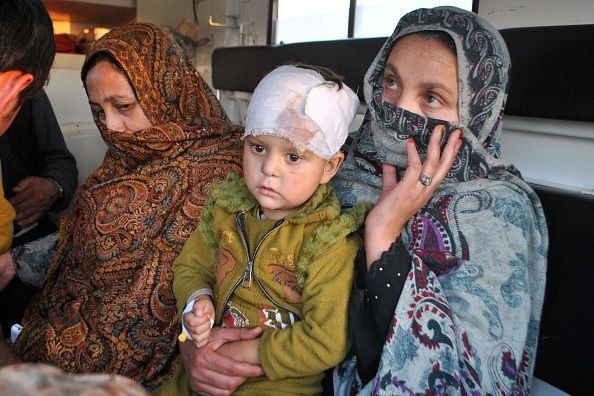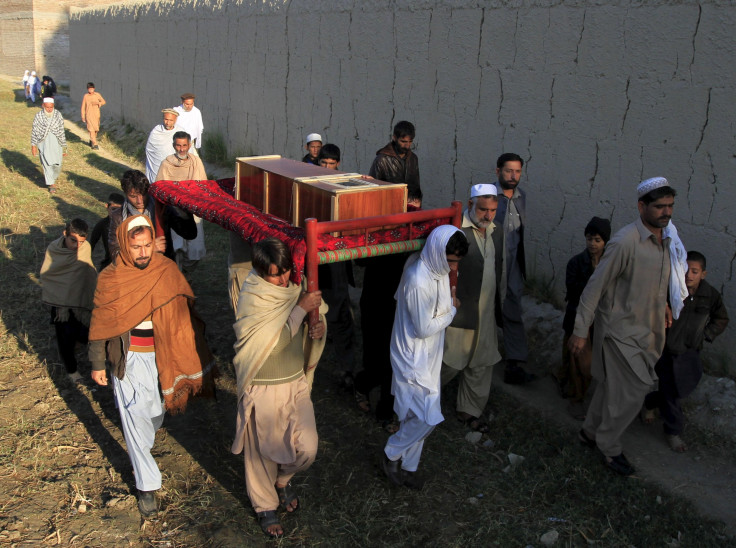Afghanistan Earthquake Update: Terrain, Weather And Conflict Are Problematic For Relief Efforts

In the wake of the 7.5-magnitude earthquake that rattled Afghanistan and Pakistan on Monday, causing devastating damage, the death toll has climbed to roughly 345 people, CNN reported Tuesday. More than 1,800 people were injured, and officials in both countries are trying to determine how to get help to devastated communities in mountainous and remote areas.
"Many villages in normal circumstances are one or two hours from proper roads," said Arif Noor, the Pakistan director for the aid group Mercy Corps, CNN reported. "As you can imagine, reaching those people and helping them out is going to be a major challenge."
Not only has navigating the mountainous terrain proved problematic, but Taliban insurgents in devastated areas in Afghanistan have complicated relief efforts.
"In the districts of Yamgan and Warduj, and in parts of Jurm District, no help has been given to people," Abdullah Najay Nazari, council chief for Afghanistan's worst-affected province of Badakhshan, told the news agency IRIN. "The government says help will be dispatched after an assessment, but how can the government send survey teams into areas where the Taliban are? These are areas where people suffered, and we also worry because of the cold weather.”

In a statement, the Taliban said it had ordered its fighters “in the affected areas to lend their complete help to the victims and facilitate those giving charity to the needy,” according to the New York Times. However, it remained unclear whether aid workers would be able to operate safely, considering Afghanistan is one of the deadliest countries for them.
“To be honest, working in such conditions is very difficult,” said Mohibullah Danish, the deputy country director for Mercy Corps, the New York Times reported. “We move with a lot of caution, and we don’t go to areas where we don’t have assurance from security officials, or the guarantee of safety from local elders.”
Aid officials said the extent of the damage should be clearer by the end of Tuesday. Survivors will likely face tough conditions, especially where snow has begun to fall.
"They will need protection from the elements, food, clean water and hygiene essentials such as soap," said Jane Cocking, the aid group Oxfam's humanitarian director, CNN reported. "It will soon be winter and people will need shelters that will keep them warm from subzero temperatures."
© Copyright IBTimes 2024. All rights reserved.






















